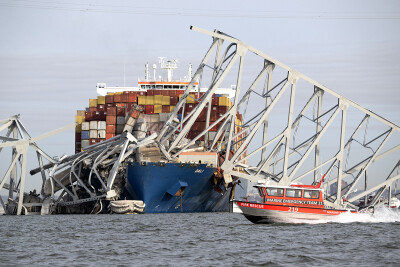Most commercial hull policies have a pollution exclusion clause. You can often get a buy back endorsement added but the coverages on this vary from company to company. Often the clause will not cover what you really need it to. What you really need is a standalone pollution policy.
A pollution policy not only covers spills related to the Oil Pollution Act of 1990 but also claims brought under the Comprehensive Environmental Response, Compensation and Liability Act (CERCLA). Marine pollution isn’t just associated with petroleum spills. Another source can be spills or discharge of other hazardous materials stored or transported on your vessel. A chemical spill can be just as big of a problem as an oil spill.
What about when you tow a barge? Is it safe from pollution claims? Even though it is not self-propelled and does not bunker fuel, you are still at risk. What if a fuel storage container on deck goes overboard? You now have a pollution claim. If your tow detaches and the barge is involved in a collision or allision that causes a fuel spill, your company will face a pollution claim.
After the spill is contained and cleaned up, who pays for your defense costs? Whether or not you are found liable, defense costs can add up quickly. Having these covered by your insurance policy is very important.
And what if your spill was a total accident? Will that stop any fines or penalties imposed on your company by state or federal authorities? Don’t count on it. A pollution policy can provide coverage for any fines that are imposed.
The only thing worse than the actual spill are images on TV or social media of oil-soaked birds on the beach. Informing the public that you are doing your best to take care of the situation can go a long way.
You may never need your pollution policy, but the coverage it provides if you have an incident will pay off in the long run. A standalone pollution policy is an important part of your vessel’s coverage and in some instances is required by the Coast Guard.





